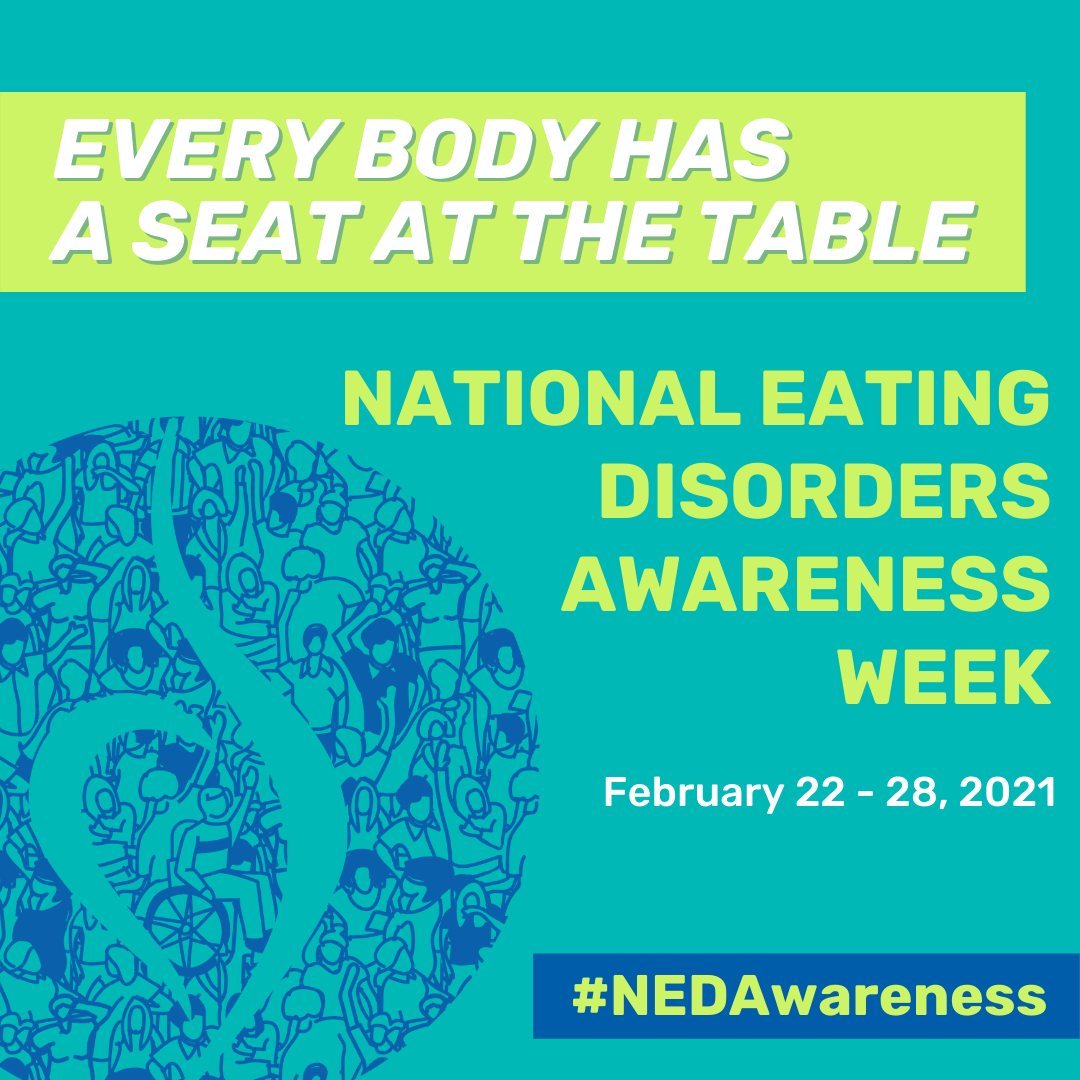February 22-28 is National Eating Disorders Awareness Week. Although eating disorders are typically associated with women, eating disorders among young men are also a serious concern. Eating disorders can result in major issues that can affect both the individual’s mental and physical health.
Spotlight on Eating Disorders
National Eating Disorders Awareness Week is designed to shine the spotlight on eating disorders by providing education, spreading a message of hope, and providing lifesaving resources to those who need them the most. This year’s message invites “every body to have a seat at the table.” One goal of the designated week of awareness is to build a movement that will support those affected by eating disorders, including men.
Types of Eating Disorders
Eating disorders are serious and often fatal illnesses that are associated with severe disturbances in an individual’s eating behaviors and related thoughts and emotions. Common eating disorders include anorexia nervosa, bulimia nervosa, and binge-eating disorder.
When someone sees themselves as overweight even when they are dangerously underweight, they have anorexia nervosa. Individuals with anorexia nervosa severely restrict the amount of food they eat, often exercise excessively, weigh themselves repeatedly, and/or may force themselves to vomit or use laxatives to lose weight. People with anorexia nervosa experience the highest mortality rate of any mental disorder. Some die from complications associated with starvation. Others die of suicide.
An individual who has recurrent and frequent episodes of eating unusually large amounts of food and feeling a lack of control over these episodes has bulimia nervosa. Their episodes of binge-eating are followed by forced vomiting, excessive use of laxatives or diuretics, fasting, excessive exercise, or a combination, as they try to compensate for their overeating. People with bulimia nervosa can be underweight, normal weight, or overweight.
When a person has lost control over their eating, they have binge-eating disorder. Unlike bulimia nervosa, their binge-eating episodes are not followed by purging, excessive exercise, or fasting, so people with binge-eating disorder often are overweight or obese. Binge-eating disorder is the most common of the eating disorders in the US.
Eating Disorders and Men
The stereotype around eating disorders is that they usually affect women. However, one in three people struggling with an eating disorder is male. Binge eating, purging, laxative abuse, and weight loss fasting are almost as common in men as in women. In the US, eating disorders will affect 10 million men during their lives. Given the stereotype and the cultural bias, though, men are less likely to seek treatment.
Eating disorder prevalence among men and boys is such that males make up a significant percentage of those diagnosed with the most common disorders:
- Anorexia Nervosa – 25%
- Binge Eating Disorder – 36%
- Bulimia Nervosa – 25%
In addition, men with eating disorders often suffer from comorbid conditions such as anxiety, depression, and substance use disorders.
Body Image Differences
Eating disorders among young men often concern their image of their own body. The way that males view their bodies is typically different than body image for women. In men, body image may involve muscularity, as muscle-enhancing goals and behaviors are common among young men and boys. The male population that may have an elevated risk of developing an eating disorders include athletes as well as racial, ethnic, sexual, and gender minorities.
Gender-Specific Treatment for Men with Eating Disorders
Men and boys are typically undiagnosed or under-diagnosed and they may fear the ramifications of seeking help for their disorder. Because of the stereotype, the social stigma, and different needs and dynamics, treatment for eating disorders among young men should be gender-sensitive and gender-specific.
Many of the assessment tests are filled with language geared toward women and girls, which has also led to misconceptions about the nature of these disorders in males. When they do seek treatment, men and boys can feel out of place when the program is predominantly female. An all-male treatment environment is more conducive to the specific needs of men with eating disorders.
Support for Men at PACE Recovery
Eating disorders can negatively impact your physical and mental health and may lead to an addiction to drugs or alcohol. At PACE Recovery, we offer gender-specific treatment options to optimize your recovery success with integrated treatment that will address both your addiction to drugs or alcohol and mental health issues. We address your whole person, including your spiritual, medical, psychosocial, and relational facets.
The professionals at PACE understand the challenges you are facing during this period of isolation and uncertainty. We’re here to help. Our men’s-only programming has transformed hundreds of lives over the years, and we believe that you can recover. To learn more about our mental health and addiction services, contact our Admissions team.


